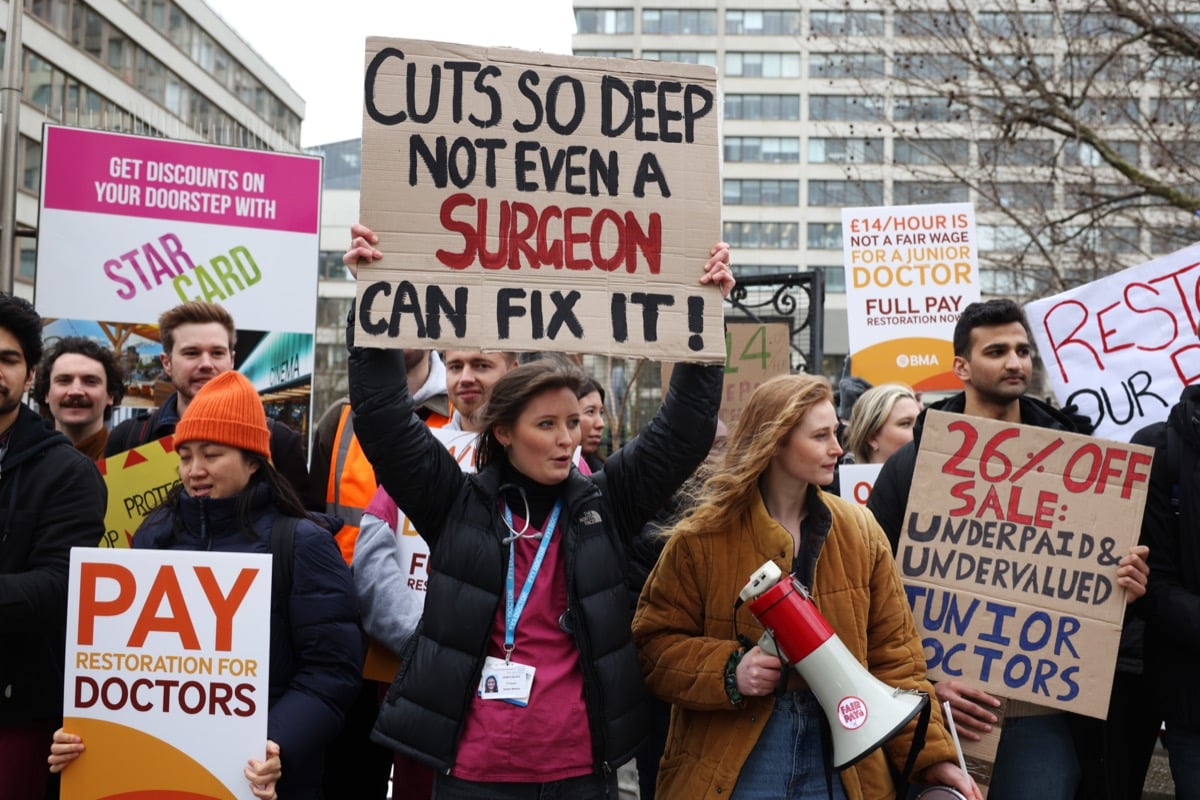On August 11, junior doctors of the British Medical Association (BMA) went on strike against the NHS. On top of the already large medical waitlist, the strike sees thousands of medical staff not at work.
There are a few reasons why the BMS is striking right now. First and foremost, medical staff are overworked and underpaid. The BMA is fighting for a 35% increase in pay to take into account 15 years of inflation, all of which has gone unacknowledged by the industry.
According to the BBC, 780,000 hospital appointments have been disrupted or postponed due to the strike. British government acquiesced to a nine per cent raise in pay, far below the 35% that the BMA is asking for. And currently, the government is quite adamant on not moving the needle in negotiations, as they consider that concession to be final. So far, the strike has cost the British government an estimated £1bn (or about $1.27 billion).
As of now, just about half of England’s medical industry is made up of these junior doctors. That means that any walk-out would be a serious blow to hospital operations across the country. While this would mean significant disruptions to service from various healthcare providers, that is ultimately what must be done to get companies to concede and treat workers better.
Keep in mind that junior doctors’ low pay is just one part of their financial grievances. Many of these young doctors are also struggling with insurmountable student loan debt. As reported by Money Nerd, the average medical student debt for those in the UK is somewhere between £50,000 to £90,000.
Hospital wait times in the UK aren’t looking too good either. As stated by the BBC, currently there are a whopping 7.57 million patients on the waitlist for hospital treatment. This puts enormous pressure on the NHS to quickly negotiate with the BMA and come to an accord.
UK Prime Minister Rishi Sunak has thrown a pretty big wrench into the mix by refusing to accommodate healthcare workers. As we’ve talked about before, Sunak is pretty darn terrible when it comes to healthcare and is in the process of stripping back many benefits from the NHS. As reported by The Guardian, Sunak is standing still on any negotiations, refusing to even talk with striking workers for better pay.
Until Sunak and the NHS start treating essential workers like actual people, it seems like healthcare services in the UK will continue to be stalled.
(featured image: Dan Kitwood/Getty Images)










Published: Aug 14, 2023 05:06 am